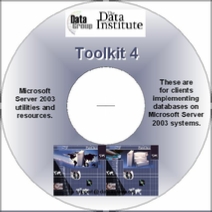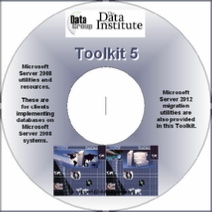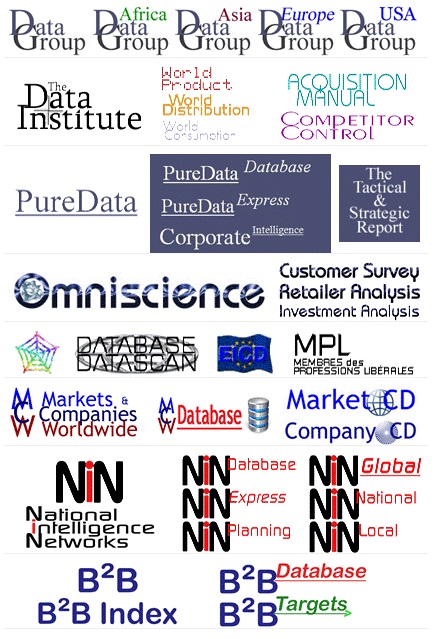
You are here...

COUNTRY
This is an entry level product which provides users with commercial intelligence on markets and industry in a particular country.
These reports are formatted to give both a narrative description of the various matters covered as well as provide readers with the ability to directly use the Chapters (via Microsoft Word or compatible word processors) to produce their own reports and documentation. Experienced users will be able to use the spreadsheet and databases to generate highly detailed narrative reports, charts & graphics - as well as sophisticated business and commercial forecasts & models. The databases are provided as both Excel spreadsheets and Access databases.
As an entry level product the narrative is necessarily illustrative in its terminology and seeks to provide a basic degree of business logic and theory which indicates the rational applied in the forecasting & modelling methodology.
The databases provided are specifically designed to provide users with a uniform and consistent numeric measure of both (normally) quantifiable values as well as conceptual factors which are (usually) only capable of qualification. Experienced users will know how to apply forecasting and modelling software to the numeric data provided to generate highly detailed and discrete business planning models. The databases provided in this report can be used directly with databases on other product, markets and industries in other countries. The databases are specifically designed to be transnational, currency neutral, inflation and purchasing parity adjusted, product parity and product equivalent adjusted, opportunity cost adjusted, and numerically compatible; they all can be linked or merged programmatically in business planning models to provide multi-national and multi-level analysis.
The Data Caveat
The report databases are designed to give a common definition, unit of measure and quantification of markets in each country.
These reports rely on data collection at various levels of the product flow; this effectively means, the producers, the distribution channels and the end user or consumers. This data is then correlated with any national and international statistical data produced by official agencies.
Because product flow data gathering in some countries is difficult, and the official statistical data is both inaccurate and sparse. In such circumstances, in some countries, we have to flag a Data Caveat as a warning.
Countries marked * indicate a data caveat due to local conditions.



There is a Country Market Report for each of the following countries.

To check in which Report a particular Product or Market Sector is covered..

Markets & Products
The database will give market data for each of the Product and Market Sectors, by year Historic: from 1997, and a Forecast by year to 2040.
To see what such Country spreadsheets looks like (illustrative examples only): Germany Market Values (US$, Euros, Yen & Yuan)
|
Financial Data
The databases will give Financial data for each of the Financial Data and Margins, by country, by year Historic from 1997, and a Forecast by year to 2040. Data will be given for the country covered.
Balance Sheet Data
To see what such a spreadsheet looks like: Balance Sheet Data
Total Sales, Domestic Sales, Exports, Pre-tax Profit, Interest Paid, Non-trading Income, Operating Profit, Depreciation: Structures, Depreciation: Plant and Equipment, Depreciation: Miscellaneous Items, Total Depreciation, Trading Profit, Intangible Assets, Intermediate Assets, Fixed Assets: Structures, Fixed Assets: Plant and Equipment, Fixed Assets: Miscellaneous Items, Fixed Assets, Capital Expenditure on Structures, Capital Expenditure on Plant and Equipment, Capital Expenditure on Vehicles, Capital Expenditure on Data Processing Equipment, Capital Expenditure on Miscellaneous Items, Total Capital Expenditure, Retirements: Structures, Retirements: Plant and Equipment, Retirements: Miscellaneous Items, Total Retirements, Total Fixed Assets, Finished Product Stocks, Work in Progress as Stocks, Materials as Stocks, Total Stocks / Inventory, Debtors, Total Maintenance Costs, Services Purchased, Miscellaneous Current Assets, Total Current Assets, Total Assets, Creditors, Short Term Loans, Miscellaneous Current Liabilities, Total Current Liabilities, Net Assets / Capital Employed, Shareholders Funds, Long Term Loans, Miscellaneous Long Term Liabilities, Workers, Hours Worked, Work in 1st Quarter, Work in 2nd Quarter, Work in 3rd Quarter, Work in 4th Quarter, Total Employees, Raw Materials Cost, Finished Materials Cost, Fuel Cost, Electricity Cost, Total Input Supplies / Materials and Energy Costs, Payroll Costs, Wages, Directors' Remunerations, Employee Benefits, Employee Commissions, Total Employees Remunerations, Sub Contractors, Rental & Leasing: Structures, Rental & Leasing: Plant and Equipment, Total Rental & Leasing Costs, Maintenance: Structures, Maintenance: Plant and Equipment, Communications Costs, Miscellaneous Expenses, Sales Personnel Variable & Commission Costs, Sales Expenses and Costs, Sales Materials Costs, Total Sales Costs, Distribution Fixed Costs, Distribution Variable Costs, Warehousing Fixed Costs, Warehousing Variable Costs, Physical Handling Fixed Costs, Physical Handling Variable Costs, Physical Process Fixed Costs, Physical Process Variable Costs, Total Distribution and Handling Costs, Mailing & Correspondence Costs, Media Advertising Costs, Advertising Materials & Print Costs, POS & Display Costs, Exhibition & Events Costs, Total Advertising Costs, Product Returns & Rejection Costs, Product Installation & Re-Installation Costs, Product Breakdown & Post Installation Costs, Product Systems & Configuration Costs, Product Service & Maintenance Costs, Customer Problem Solving & Customer Complaint Costs, Total After-Sales Costs, Total Marketing Costs, New Technology Expenditure, New Production Technology Expenditure, Total Research and Development Expenditure, Total Operational & Process Costs, Debtors within Agreed Terms, Debtors Outside Agreed Terms, Un-recoverable Debts.
Financial Margins & Ratios Data
To see what such a spreadsheet looks like: Financial Margins & Ratios Data
Return on Capital, Return on Assets, Return on Shareholders' Funds, Pre-tax Profit Margins, Operating Profit Margin, Trading Profit Margin, Return on Investment, Assets Utilisation (given as a ratio of Sales to Total Assets), Sales as a ratio of Fixed Assets, Stock Turnover (Sales as a ratio of Stocks), Credit Period, Creditors' Ratio (given as Creditors divided by Sales times 365 days), Default Debtors given as a Ratio of Total Debtors, Un-Recoverable Debts given as a Ratio of Total Debts, Working Capital / Sales, Materials & Energy Costs as a % of Sales, Added Value, Investment as a Ratio of Added Value, Value of Plant & Equipment as a % of Sales, Vertical Integration (Value Added as a % of Sales), Research & Development Investment as a % of Sales, Capital Expenditure Investment as a % of Sales, Marketing Costs as a % of Sales, Current Ratio (Current Assets as a ratio of Current Liabilities), Quick Ratio, Borrowing Ratio (or Total Debt as a ratio of Net Worth), Equity Ratio (Shareholders Funds as a ratio of Total Liabilities), Income Gearing, Total Debt as a ratio of Working Capital, Debt Gearing Ratio (Long Term Loans as a ratio of Net Worth), Average Remuneration (all employees - full and part), Profit per Employee, Sales per Employee, Remunerations / Sales, Fixed Assets per Employee, Capital Employed per Employee, Total Assets per Employee, Value of Average Investment per Employee, Value Added per Employee, Materials Costs as a % of Sales, Wage Costs as a % of Sales, Payroll and Wages as a Ratio to Materials, Variable Costs as a % of Sales, Fixed Costs as a % of Sales, Fixed Costs as a Ratio of Variable Costs, Distribution Costs as a % of Sales, Warehousing Costs as a % of Sales, Physical Costs as a % of Sales, Fixed as a Ratio of Variable Distribution Costs, Fixed as a Ratio of Variable Warehousing Costs, Fixed as a Ratio of Variable Physical Costs, Fixed as a Ratio of Variable Total Distribution & Handling Costs, Product Returns & Rejections Costs as a % of Sales, Product Installation & Associated Costs as a % of Sales, Product Breakdown & Associated Costs as a % of Sales, Product Systems & Associated Costs as a % of Sales, Product Service & Associated Costs as a % of Sales, Customer Complaint & Associated Costs as a % of Sales, Stock Work in Progress & Materials as a Ratio of Finished Products, Stock Materials as a Ratio of Work in Progress, Un-recoverable Debts as a Ratio of Total Debt, Un-recoverable Debts as a Ratio of Debts Within Agreed Terms, Total Sales Costs as a % of Sales, Total Distribution & Handling Costs as a % of Sales, Total Advertising Costs as a % of Sales, Total After-Sales Costs as a % of Sales, Total Customer Compensation Costs as a % of Sales, Total Variable Marketing Costs as a % of Sales, Total Fixed Marketing Costs as a % of Sales, Total Fixed Marketing Costs as a Ratio of Total Variable Marketing Co, Variable Sales Personnel Costs as a Ratio of Marketing Costs, Variable Distribution & Handling Costs as a Ratio of Marketing Costs, Variable Advertising Costs as a Ratio of Marketing Costs, Variable After-Sales Costs as a Ratio of Marketing Costs, Sales Personnel Variable Costs as a Ratio of Sales, Sales Personnel Variable Costs as a Ratio of Debtors, Sales Personnel Variable Costs as a Ratio of Un-Recoverable Debtors, Exports as a % of Sales, $ Hourly Pay Rate, $ Hourly Wage Rate, Capital Employed. |
General Contents
Country Databases
This is an entry level product which provides
users with commercial intelligence on markets and industry in a particular
country.
|
Database Edition Market Research Contents
Please also see the Notes to the contents: Notes
Within each heading there are links with detailed descriptions and explanation of the contents; these can be opened when the link is clicked.
|
|||||||||||||||
|
|||||||||||||||
Databases & Structures
|
||||||||||||||||||||||||||||||||||||||||||||||||||||||||||||||||||||||||||||||||||||||||||||||||||||||||||||||||||||||||||||||||||||||||||||||||||||||||||||||||||||||||||||||||||||||||||||||||||||||||||||||||||||||||||||||||||||||||
Country data
|
Country |
Market |
Market Forecast |
Financial Forecast |
Financial Margins |
Historic Financial |
Historic Costs |
Industry Norms |
|
Country |
Market | Forecast | Forecast | Forecast | Historic | Historic | Norms |
Real Time SupportThe After-Sales Service can offer client Real-Time Support. This usually involves using a software utility called TeamViewer (an installation program can be found in the Toolkit on your DVD or Hard Disk Drive) which allows the After-Sales Service support staff to directly link to the client’s computer and work with the users in real time.
ToolkitsTo assist users there are various Toolkits available on request:
The Files, Data, Documents, Software, Tools, Utilities and other items provided on these DVDs are supplied for the sole use of the recipient. These items are the property of the publishers concerned and they may not be released or distributed without the express permission of the publisher of each item.
|
|
Toolkit 1 1. Data Manuals 2. Document Templates 3. Help files 4. Manuals Templates 5. Microsoft Utilities 6. OpenOffice 7. Business Plan Images 8. Reference files 9. US Census Data Tools 10. Utilities & Tools
|
Because all our databases are directly compatible with U.S. Government databases it is sometimes useful for users to use US Government data handling tools to manage not only US Government data, but also the data provided by us. Alternatively, if you are already using this US Government software you can simply access our databases with the same software. In general we use the same database parameters, structures and field names as those found in US Government databases, and thus users can correlate and query databases without undue difficulty. |
|
Toolkit 2 1. Database Utilities 2. Enterprise Resource Planning 3. Integrated Development Environment
|
If you intend to implement our databases online (internet or intranet) then an Integrated Development Environment is often the easiest route to data dissemination and data manipulation. |
|
Toolkit 3 There are about 40 Statistical packages provided in this Toolkit. These are Open-Source packages which are generally free to use: acslX, ADaMSoft, ADMB, AMPL, Analyse-it, Analytica, Angoss, APMonitor, ASReml, Automlab, Baudline, Bayesian Filtering Library, BMDP, BV4.1, CalEst, Ch, Chronux, COMSOL Script, CSPro, DADiSP, DAP, Data Applied, Dataplot, Demetra+, EJS, ELKI, Epi Info, Euler Mathematical Toolbox, EViews, FAME, FEniCS Project, Fityk, FlexPro, GAUSS, Genedata Analyst, GenStat, GeoDA, GLIM, GNU Data Language, GraphPad InStat, GraphPad Prism, gretl, Hermes, IBM SPSS Modeler, IBM SPSS Statistics, IDAMS/WinIDAMS, IDL, IGOR Pro, IMSL Numerical Libraries, Izenda, JAGS, JHepWork, JMP, JMulTi, Julia, KPP, LabPlot, LISREL, Macsyma, Madagascar, MadArtSoft, Madeline, Maple, Mathcad, Mathemagix,, Mathematica, MATLAB, MCSim, MedCalc, Minitab, MINUIT, MLwiN, Mondrian, NCAR Command Language, NCSS, NMath Stats, numberGo Publisher, NumXL, Octave, O-Matrix, OpenBUGS, OpenEpi, OpenMx, OptimJ, Orangesrc="images/ Origin, OriginPro, PARI/GP, Partek, PAW, Perl Data Language, Ploticus, Primer-E Primer, PSPP, PV-WAVE, Q research software, QtiPlot, Quantum, R, R Commander, R Rattle GUI, RapidMiner, RATS, Revolution Analytics, ROOT, Sage, SALOME, Salstat, SAS, scikit-learn, Scilab, SciPy, SHAZAM, Shogun, SigmaStat, SigmaXL, Simfit, Simul, SOCR, SOFA Statistics, SPC XL, Speakeasy, S-PLUS, SPSS, Stata, Statgraphics, STATISTICA, Statistical Lab, Stat-JR, Stats Helper, StatXact, SUDAAN, Systat, The Unscrambler, Trilinos, Unistat, VisSim, Waffles, Weka, WinBUGS, Winpepi, X-12-ARIMA, XLfit, Xlisp-stat, XploRe, Yorick
|
|
|
Toolkit 4 Utilities & resources, for clients using databases on Microsoft Server 2003 systems. |
Toolkit 5 Utilities & resources for clients with Microsoft Server 2008 systems. Microsoft Server 2012 migration utilities are also provided in this Toolkit |
Proprietary Software package compatibilityIf you use proprietary corporate planning software then it is easy to use these databases as they are compatible with the following packages:- Some Compatible Software products (See the Database Support site for a full list) Project Management Software: 24SevenOffice, Assembla, AtTask, Basecamp, Central Desktop, Cerebro, Clarizen, codeBeamer, Collabtive, Concerto, Contactizer, CredAbility.info, dotProject, Easy Projects .NET, eGroupWare, FastTrack Schedule, Feng Office Community Edition, FogBugz, GanttProject, Gemini, Genius Inside, Glasscubes, Huddle, Hyperoffice, InLoox, JIRA, Journyx, Kayako, KForge, KPlato, Launchpad, LiquidPlanner, LisaProject, MacProject, MantisBT, MatchWare MindView 3 Business, Merlin, MicroPlanner X-Pert, Microsoft Office Project Server, Microsoft Project, Mingle, O3spaces, OmniPlan, Open Workbench, OpenProj, Oracle Project Portfolio Management, Planisware 5, Planner Suite, Pmplus+, Primavera Project Planner, Project KickStart, Project.net, Project-Open, Projectplace, ProjectSpaces, Projektron BCS, PSNext, QdPM, QuickBase, Redmine, Rachota, SAP RPM, Smartsheet, TaskJuggler, Teamcenter, Teamwork, Tenrox, Trac, TrackerSuite.Net, Ubidesk, VPMi, WorkLenz, WorkPLAN Enterprise, workspace.com, WebSPOC, Wrike, Zoho Projects ERP Packages: Adempiere, BlueErp, Compiere, Dolibarr, Fedena, GNU Enterprise, JFire, Kuali Foundation, LedgerSMB, OFBiz, Openbravo, OpenERP, Opentaps, Postbooks, SQL-Ledger, Tryton, WebERP, 1C:Enterprise, 24SevenOffice Start / Premium / Professional, abas ERP, Accpac, Agresso Business World, AMS Advantage, BatchMaster ERP, Bowen & Groves, CGram Enterprise, Clear Enterprise, Comarch Altum, Compass ERP, Compiere, Comprehensive Patient Administrator, COA Solutions Ltd - Smart Business Suite, Consona Corporation – Intuitive / Made2manage / AXIS / Cimnet / Encompix / DTR, Epicor Enterprise, Global Shop Solutions One-System ERP Solutions, HansaWorld, ERP Adage (Adage), ERP LN (Baan), ERP LX (BPCS) ,ERP SL (SyteLine), ERP Swan, ERP SX.Enterprise (SX.Enterprise), ERP VE (Visual Enterprise), ERP XA (MAPICS), IFS Applications, JD Edwards EnterpriseOne & JD Edwards World, JustFoodERP.com, kVASy4, Kingdee, Lawson M3 / Movex, Lawson S3, Log-net, Maximo (MRO), Microsoft Dynamics AX, Microsoft Dynamics GP, Microsoft Dynamics NAV, Microsoft Dynamics SL, Momentum, MyWorkPLAN, NetSuite, Openda QX, OpenMFG, Oracle e-Business Suite, Paradigm, PeopleSoft, Plex Online, QAD Enterprise Applications, Ramco Enterprise Series 4.x, Ramco e.Applications, Ramco On Demand ERP, MAS 90, MAS 200, MAS 500, Technology One, SAGE ACCPPAC, SAGE Pro ERP, SAGE ERP X3, SAP Business Suite, SAP Business ByDesign, SAP Business One, SAP Business All-in-One, TaskHub, SYSPRO, SYS-APPS, mySAP, Visibility.net, WorkPLAN Enterprise Enterprise Feedback Management Systems: SynGro, Perseus (Vovici), Clicktools, DatStat, Inquisite, SPSS, FIRM (Confirmit), NetReflector, Allegiance, Enetrix, Satmetrix, RightNow Technologies, Mindshare Technologies, Data Illusion, KeySurvey (WorldAPP), Kinetic Data, CustomerSat, Medallia, Interview SA, Surveynomics, Invoke Solutions, Qualtrics, Fizzback, Grimmersoft, QuestManager, QuestBack, Globalpark, DataCycles, Dub Studios, eLustro, Kinesis Survey Technologies, Knowledge Wave, myK (myKnowledge), mySurveyLab.com, QuickSearch, Ransys, ResponseTek Networks Corp., TalkFreely, XTCO, Zarca
Resource WebSometimes clients also want the data loaded onto a password protected dedicated website for the use of their staff and any other persons they may authorise. The main benefit of these Resource Webs is that the data is available to all the client’s staff and professional advisors wherever they may be, and also when data is updated, or new data is added, then there is a common point of access for that data. Resource Webs are maintained for the use of the client for a period of 12 months from the last update to that site. These dedicated web sites are provided by the After-Sales Service. For a detailed view of a typical Resource Web: http://www.eni-italy.info produced for ENI, the Italian Oil group |
Research & Survey Methodology AnalysisSome client may wish to understand the statistical and methodological basis of the specific research conducted and this can be provided as part of the After-Sales Service. |
|
|
Statistical Appraisal of Datasets (via the After-Sales Service) |
|
|
Sampling: o External Validity o Sampling Terminology o Statistical Terms in Sampling o Probability Sampling o Nonprobability Sampling
·Measurement: · Construct Validity o Measurement of Validity Types o Construct Validity o Convergent & Discriminant Validity o Threats to Construct Validity o Nomological Networks o Multi-trait / Multi-method Matrix o Pattern Matching Construct Validity · Reliability o True Score o Measurement Error o Reliability o Type of Reliability Analysis o Validity · Levels of Measurement · Survey Research o Survey Type o Selecting the Survey Method o Construction of the Survey § Questions § Question Content § Response Format § Question Wording § Question Placement o Interviews o Appraisal of Survey Method · Scaling o General Issues in Scaling o Thurstone Scaling o Likert Scaling o Guttman Scaling · Qualitative Measures o Qualitative Discussion o Qualitative Data o Qualitative Approach o Qualitative Method o Qualitative Validity · Unobtrusive Measures |
Design: · Internal Validity · Establishing Cause & Effect · Single Group Threats § Regression to the Mean · Multiple Group Threats · Social Interaction Threats · Design Development · Design Type · Experimental Designs · Two-Group Experimental Design § Probabilistic Equivalence § Random Selection & Assignment · Classifying Experimental Designs · Factorial Design § Factorial Design Variations · Randomized Block Design · Covariance Design · Hybrid Experimental Design · Quasi-Experimental Designs o Non-equivalent Groups Design o Regression-Discontinuity Design o Other Quasi-Experimental Design · Relationships of Pre-Post Designs · Formulation of the Designs · Modification & Experimentation
Analysis: · Conclusion Validity o Threats to Validity o Validity Improvements o Statistical Control · Data Preparation · Descriptive Statistics o Correlation · Inferential Statistics o T-Test o Indicator Variables o General Linear Model o Post-test-Only Analysis o Factorial Design Analysis o Randomized Block Analysis o Analysis of Covariance o Non-equivalent Group Analysis o Regression-Discontinuity Analysis · Regression Displacement Analysis
|
|
Database Compatibility
The increased use of Database Management Systems, Business Planning and Control Systems, Enterprise Resource Planning, Management Information Systems, and other tools amongst management professionals has produced a critical need for the harmonisation of data across various software applications and systems platforms. The After-Sales Service ensures that its output, where required, will be fully compatible with every product and database.
For this reason all the databases use harmonised database structures and data sets; thereby users can obtain any database from any of the publishers, for any of their brands, with the assurance that these databases are fully compatible and can be used in conjunction with one another and the various platforms, operating systems and software.
Since 2007, we have undertaken the harmonisation and convergence of the database specifications and definitions of the various database providers. This is to allow users a uniform and standardised reference to use with their planning and forecasting; and to allow cross-database functionality.
The data sets, modules and standards shown are now fully harmonised and standardised to allow data and software interflow and cross-platform usage of the databases. Users may obtain older data dictionaries and standards, and/or data sets and data dictionaries for their own national standards. The standard product and market definitions have been harmonised and are provided (in the standard database products supplied), often as the NAICS classifications. Users wishing to remain with the previous SIC classifications may obtain these databases under that classification system. Users requiring other (U.N., European, Japanese, et cetera) classification definitions and norms may obtain those as necessary. Accounting standards are also harmonised according to the U.S. regulatory norms; however other norms are available. Data dictionary and data definition bridges and converters are available to allow users to update or standardise their databases. We have undertaken to maintain support for the older data dictionary standards and definitions until 2025; however users are urged to update at their earliest convenience. |
COUNTRY DATABASE CONTENTS
The Country Market Reports contain the below data, including 60 chapters, plus thousands of Excel spreadsheets & Access databases.


Online download




| PureData |
| Chemical & Pharma |
| PureData Express |
| PureData World |
| PureData Regions |
| PD Country & Town |
| PureData Country |
| PureData PDF |
| PureData Database |
| Chemical Databases |
| Pharma Databases |
| Get Brochure |
| PureData Express |
| PureData World |
| PureData Regions |
| PD Country & Town |
| PureData Country |
| PureData PDF |
| PureData Database |
| PureData PDF |
| PureData Database |
| PureData |
| Chemical & Pharma |
| PureData Express |
| PureData World |
| PureData Regions |
| PD Country & Town |
| PureData Country |
| PureData PDF |
| PureData Database |
| Chemical Databases |
| Pharma Databases |
| Get Brochure |
| Base Corporate Data |
| Tactical & Strategic |
| Acquisitions |
| Get Brochure |
| Companies List |
| TS Companies |
| ACQ Companies |
| Market |
| Companies |
| Product |
| Process |
| Distribution |
| Technology |
| World Geographic |
| B2B Buyer Index |
| Markets & Companies |
| NIN Global |
| World Consumption |
| Market Surveys |
| B2B Purchasing |
| B2B Databases |
| B2B Targets |
| B2B Reports List |
| B2B About |
| B2B Buying PDF |
| Summary Reports |
| World Databases |
| Regional Databases |
| Country & Town |
| Country Databases |
| Market Data CD |
| MCW PDF |
| NIN Express |
| NIN Databases |
| Global Data |
| Regional Data |
| National + City |
| National Data |
| National Intelligence |
| National & Local |
| Local Intelligence |
| NIN About |
| NIN - PDF |
| MCW Companies |
| Retailer Analysis |
| Retailer Surveys |
| Retailer Reports |
| Competitors |
| Company Data CD |
| Financial Performance |
| Marketing Performance |
| Business Handbooks |
| Business Planning |
| Company Surveys |
| Company Intelligence |
| Corporate Archive |
| World Product |
| Product Surveys |
| NAICS List |
| World Process |
| Process Surveys |
| Process Inputs |
| World Distribution |
| Distribution Surveys |
| Technology Surveys |
| Countries |
| Cities & Towns |
| Geographic Areas |
| World Industries |
| World Logistics |
| World Marketing |
| World Consumers |
| Account Holders |
| Clients |
| Compatibility |
| FAQ |
| Methodology |
| Orders |
| Our Brands |
| Questions |
| Quotations |
| Terms |
| Ancillary Services |
| After-Sales Support |
| Bespoke Databases |
| Business Resource |
| Consultants |
| Data Mining |
| Image Surveys |
| Online |
| Reference |
| Research Webs |
| Resource Webs |
| Seminars |
| Service Team |
| Support |






